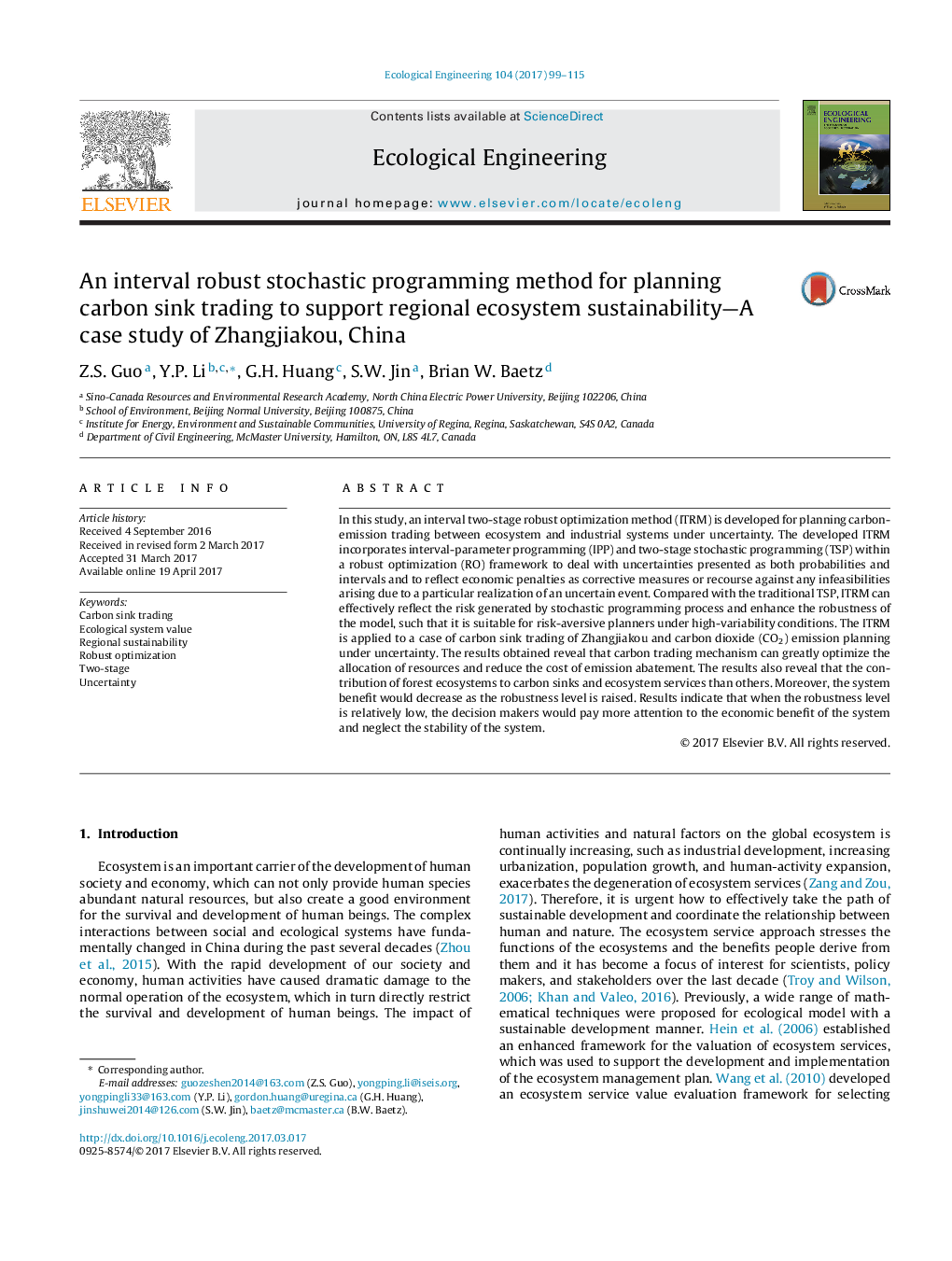| کد مقاله | کد نشریه | سال انتشار | مقاله انگلیسی | نسخه تمام متن |
|---|---|---|---|---|
| 5743949 | 1412325 | 2017 | 17 صفحه PDF | دانلود رایگان |

- An interval two stage stochastic robust optimization method is developed.
- ITSRP is applied to plan carbon sink trading of Zhangjiakou's ecosystem.
- Results show that uncertainty has an important role carbon sink trading.
- Results can help identify tradeoff between carbon source and carbon sink.
In this study, an interval two-stage robust optimization method (ITRM) is developed for planning carbon-emission trading between ecosystem and industrial systems under uncertainty. The developed ITRM incorporates interval-parameter programming (IPP) and two-stage stochastic programming (TSP) within a robust optimization (RO) framework to deal with uncertainties presented as both probabilities and intervals and to reflect economic penalties as corrective measures or recourse against any infeasibilities arising due to a particular realization of an uncertain event. Compared with the traditional TSP, ITRM can effectively reflect the risk generated by stochastic programming process and enhance the robustness of the model, such that it is suitable for risk-aversive planners under high-variability conditions. The ITRM is applied to a case of carbon sink trading of Zhangjiakou and carbon dioxide (CO2) emission planning under uncertainty. The results obtained reveal that carbon trading mechanism can greatly optimize the allocation of resources and reduce the cost of emission abatement. The results also reveal that the contribution of forest ecosystems to carbon sinks and ecosystem services than others. Moreover, the system benefit would decrease as the robustness level is raised. Results indicate that when the robustness level is relatively low, the decision makers would pay more attention to the economic benefit of the system and neglect the stability of the system.
Journal: Ecological Engineering - Volume 104, Part A, July 2017, Pages 99-115